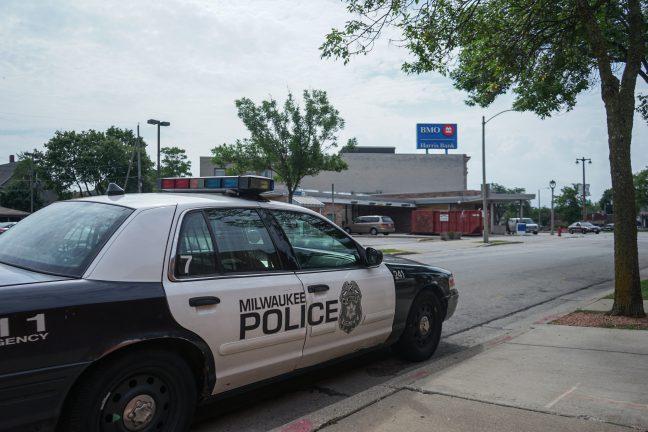This summer, the Milwaukee Police Department introduced the Summer Guardian program to 27 Milwaukee neighborhoods experiencing high levels of gun violence.
Through the program, police officers are connecting with community groups and going door-to-door to hand out informational packets and build relationships with residents. The program aims to rebuild the lost trust between community members and police officers.
“We cannot do this alone,” Captain James Hutchinson, commander of the Special Investigation Division of the initiative said to Milwaukee CBS 58.
Hutchinson explained that community members are directly affected by crime in their neighborhoods, but are hesitant to reach out to law enforcement officials due to stigma and mistrust.
According to a USA TODAY Network poll, 61% of Milwaukee residents describe the performance of Milwaukee police as “fair” or “poor.” Only 1% of Black residents rate the police’s performance as “excellent.”
The racial divide in residents’ assessment is attributed to a history of racial profiling by law enforcement at national and local levels. The MPD has had racist incidents in the past, including the shooting of Daniel Bell 60 years ago and the illegal body cavity searches of Black citizens in 2012.
With Black residents currently composing nearly 40% of Milwaukee’s population, the police department should foster a sense of teamwork with residents in their combat against violence.
Milwaukee holds the third highest rates for murder, aggravated assault and robbery among the largest cities in the U.S., according to a 2023 report by SafeHome.org. While the need for increased law enforcement is clear, reducing the hostility between police and residents needs to be prioritized.
The Summer Guardian program allows for personal interaction between residents and police officers in a positive context, which is a step forward in rebuilding their relationship. Community members are treated like partners in the MPD’s campaign against violence. MPD’s partnership with the United Methodist Children’s Services reinforces its desire to work towards all aspects of the community’s well-being.
While the Summer Guardian program should continue their efforts, this initiative alone is not enough. For instance, MPD officers only need to live within 15 miles of the Milwaukee jurisdictional boundaries. This raises questions about how officers and residents can foster community, if some of them do not even belong to the same community.
Distrust can lead to sentiments of over policing and fear, hindering the Summer Guardian program’s goal. The program should only be extended beyond the summer if they continue to prioritize their dedication to community partnership.
Aanika Parikh (aaparikh5@wisc.edu) is a sophomore studying molecular and cell biology.



